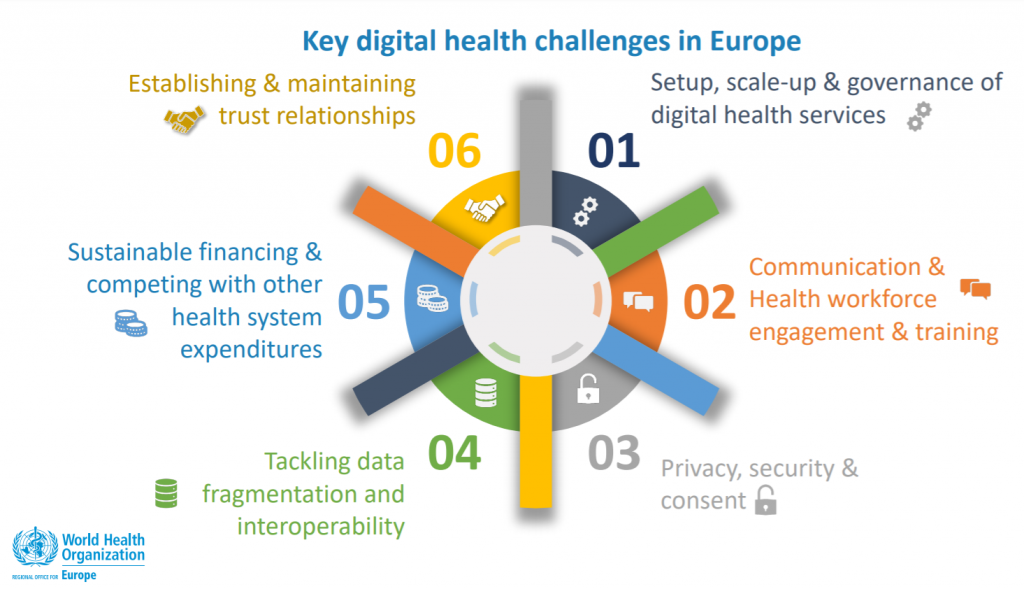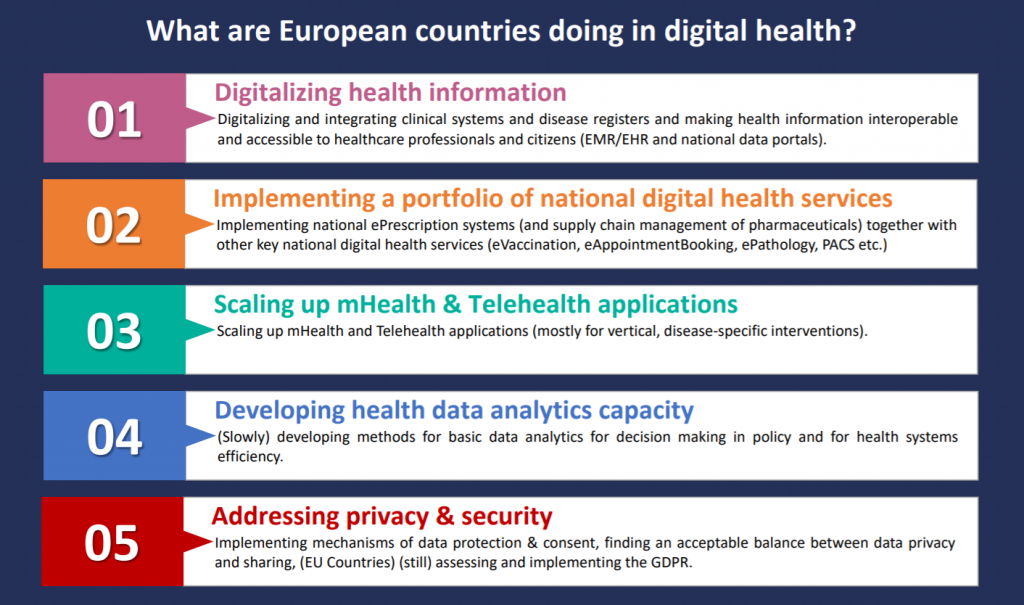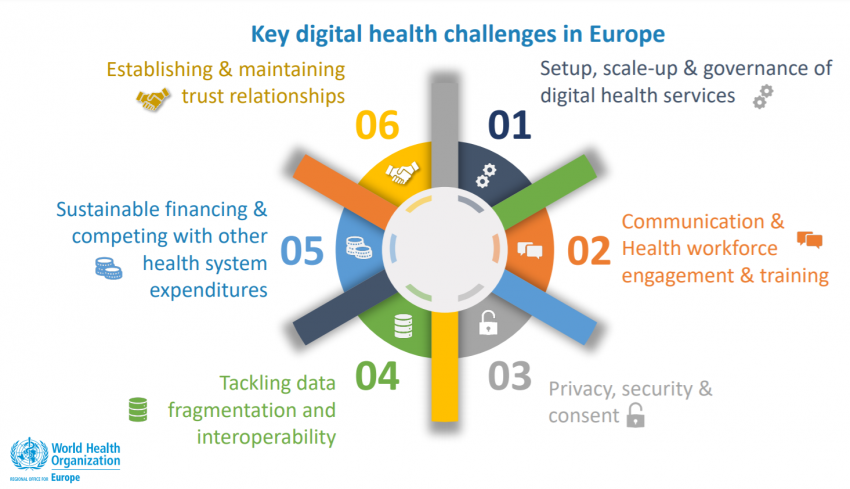As a member of Health Education England’s Technology Enhanced Learning (HEE TEL) team, I had the great privilege of meeting with Clayton Hamilton of the World Health Organization (WHO) earlier this month to learn about and discuss the cross-over between our work on technology enhanced learning in healthcare.
The WHO is an executive department of the United Nations, headquartered in Geneva, Switzerland. Clayton’s team is responsible for investigating and advising the 53 countries in the European region (a population of 900 million) on the digitalisation of their health systems, including workforce education systems.
These are my personal reflections on the meeting and on how our work in HEE TEL links to the WHO priorities.
Due to the diverse types of countries in Europe (some of which are high-income and have universal healthcare like the United Kingdom, and others which are low or middle-income and are not as fortunate as residents of the UK) definitions of digital vary widely. However, Clayton remarked that the problems encountered implementing digital are similar irrespective of wealth, so the WHO acts as a knowledge broker for sharing best practice to avoid repeating previous problems.
Goal 3 of the 17 UN Sustainable Development Goals states that individuals in all countries should have access to universal basic healthcare, so that no individual should be pushed into poverty while accessing basic healthcare services. So, the work of Clayton’s team is to ensure that in implementing digital services for healthcare, no individual is “left-behind” or disadvantaged. At the heart of this aspiration is the healthcare workforce and making sure they have suitable training to ensure that they can deliver the best patient care using the digital tools and technologies available to them.
Good health and wellbeing are about equity of access, so in digital terms this is ensuring good flow of healthcare data to support healthcare decision makers, so the WHO has a key role in strengthening regional and global governance for digital health and health systems. However, with the increasing use of digital, the complexity of healthcare systems is increasing, presenting new risks and challenges, particularly for healthcare workers who are finding it harder to keep up with these changes in technology. The WHO is developing a global strategy on digital health (currently in draft) to support the changes which will need to happen in the workforce to continue delivering outstanding patient care. The WHO is also exploring the use of AI in healthcare, including the opportunities and ethics associated with analysing such data, potentially developing international standards for AI in healthcare.
At a European level, there are six digital health challenges identified by the WHO, of which upskilling the workforce is a named priority as well as underpinning many of the other key areas. Additionally, Clayton specifically referenced our own work on digital literacy and how good digital capabilities support the adoption and realise the benefits of new technologies being introduced, with this work needing to be accelerated.

From these challenges, the WHO has identified five areas where European countries are leading on digital health and these areas continue to need strengthening. The UK in particular is the most mature in our use of telehealth but there is still much to do in this area and the workforce are key to addressing this need.

It is always energising and empowering to meet with people like Clayton who are as passionate about improving healthcare as I am and it is reassuring to see that many of the WHO initiatives align directly to the Technology Enhanced Learning programme’s objectives, as well as the wider work of HEE. For example, the key areas we discussed for improvement are all around technology and the healthcare workforce, namely:
- Developing more concrete approaches to enhancing the digital capabilities of the healthcare workforce, coupled with a dialogue on changing roles and responsibilities.
- A renewed focus on combatting clinician burnout through initiatives for streamlining and integration of digital solutions in health systems.
- Further acceleration of AI use in health with an increased focus on data issues and development of an AI platform for health
Many of the challenges we discussed are going to fundamentally alter how we work with, train and deliver healthcare in the future. But I left our discussion feeling assured that our work in the TEL programme is helping to address those challenges, easing the burden on my clinical colleagues, supporting the provision of patient care, and ensuring that the NHS remains the best healthcare system in the world.
